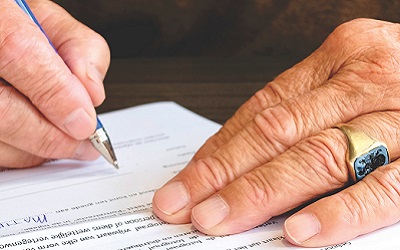What Is My Role As An Executor/Administrator?

We are often asked: “I’ve been named as Executor in my mother’s Will. What does an Executor of an estate do?” First, for terminology, an Executor in certain cases can be referred to as an Administrator, but the role is very similar so we’ll combine all the terms under Personal Representative, or “PR” for short. The main responsibility of a PR is settling the estate of a decedent, but you may be wondering what it actually takes to settle an estate.
Below is a brief synopsis of some key PR duties:
(1) Locate the Will.
The most important document the PR should locate is the original Will. The Will specifies how the decedent’s assets should be distributed to the beneficiaries.
(2) Gather Assets.
The PR should gather all asset information including, but not limited to, account statements, vehicle information, listing of tangible personal property, and Shareholder Agreements or Operating Agreements. This information will assist the PR in determining the classes of assets and the value of the estate. It also allows the PR to determine if it is necessary to probate the estate with the Clerk of Court. It is at this point that we recommend PRs seek legal counsel.
(3) File Court Documents.
If it is determined that probate is necessary, the PR will file the original Will, death certificate and initial paperwork with the Clerk of Court to open the estate. The probate process involves several filings with the Court including a 90 Day Inventory and Annual/Final Account.
(4) Notice to Creditors.
As required by statute, the PR should publish a Notice to Creditors with an approved local publication. Creditors of the decedent will have a set timeframe within which to present their claim for payment and the end of this period can be referred to as the Claims Bar Date. Claims received should normally not be paid until after the Claims Bar Date. The statutes set forth the order for claims to be paid and it can be very important for PRs to follow these rules to avoid personal liability for estate debts.
(5) Taxes.
The PR should work with an accountant to prepare and sign the decedent’s final individual income tax return and estate tax returns (estate income and estate and gift tax returns, as applicable).
(6) Distribute Assets.
Once all expenses and claims have been paid, the PR should distribute estate assets according to the terms of the Will.
(7) Close Estate.
After all of the estate assets have been distributed, the estate file should be closed with the Court.
An important area of our practice is guiding clients through their appointment as PR. We understand how much responsibility is given to these individuals and we strive to make it as easy as possible along the way. If you have had a loved one pass and need assistance through the process or would like more details about the PR role, please contact us to speak with one of our attorneys.
* Intended as general guidance only and not as legal advice.
